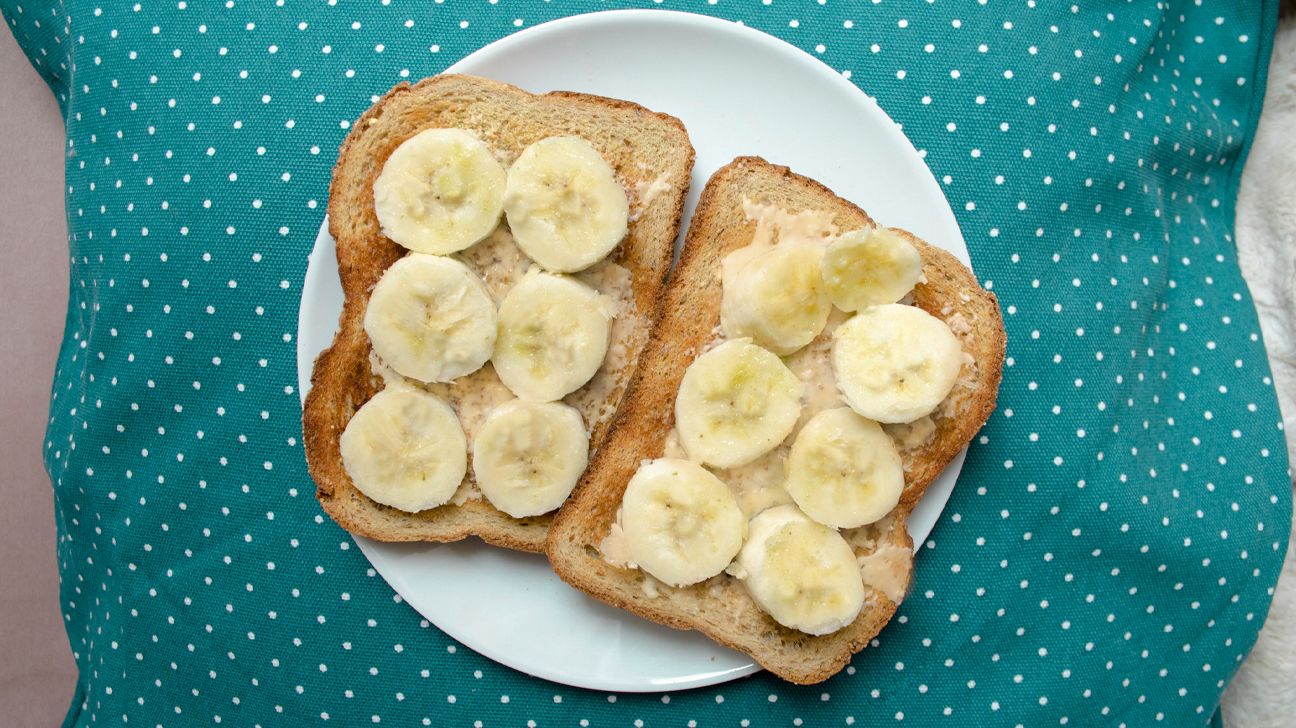We include products we think are useful for our readers. If you buy through links on this page, we may earn a small commission. Here’s our process.
Greatist only shows you brands and products that we stand behind.
Our team thoroughly researches and evaluates the recommendations we make on our site. To establish that the product manufacturers addressed safety and efficacy standards, we:- Evaluate ingredients and composition: Do they have the potential to cause harm?
- Fact-check all health claims: Do they align with the current body of scientific evidence?
- Assess the brand: Does it operate with integrity and adhere to industry best practices?
“When you’re climbing up a ladder and you hear something splatter…” Remember the Diarrhea Song of the early 90s? 🙋♂️ It’s not so funny when you’re living it. Fortunately there’s some simple steps you can take to keep hunger (and the runs) at bay.
Let’s break down what you can do when Mt. Butt erupts.
What should you eat when you have diarrhea?
A bland diet, which includes:
- eggs
- broth
- lean meats
- low fat yogurt
- oatmeal
- white breads and pastas
- bananas
- electrolyte-enhanced sport drinks
Diarrhea (aka watery bowel movements) happens to everyone occasionally and usually won’t last more than 3 days.
Other diarrhea symptoms include:
- cramping
- abdominal bloating
- an urgent need to go
- nausea
- fever
- a bubbly sensation in your tummy
Peeps with chronic digestive issues like IBS, Crohn’s disease, or ulcerative colitis may have diarrhea more often.
Some common causes of diarrhea include:
- Viral infections. viruses like norovirus and rotavirus are frequent causes of diarrhea.
- Bacterial infections (aka Traveler’s diarrhea). This is caused by bacteria-infected food or water. Common bacteria strains include Campylobacter, Escherichia coli (E. coli), Salmonella, and Shigella.
- Parasitic infections. These are caused by a parasite entering your body usually through contaminated water. Common examples include Cryptosporidium enteritis, Entamoeba histolytica, and Giardia lamblia.
- Food intolerances or food allergies. Like lactose intolerance or gluten intolerance.
Adjusting your diet is the first line of defense against diarrhea. Some foods can help, while others can be triggering.
As you recover from a bout of diarrhea, you should eat bland foods that are gentle on your gut.
What’s a bland diet?
These are foods that are soft, low in fiber, and not fried, spicy, or stimulating (like caffeine or alcohol.)
The MVPs of a bland diet include:
- soup, especially broth
- low fat yogurt
- cooked, canned, or frozen vegetables (like spinach, peas, or potatoes)
- applesauce
- breads, crackers, and pasta made with refined white flour (choose gluten-free if needed)
- refined hot cereals like oatmeal
- lean, tender meats, such as poultry, fish, and shellfish (steamed, grilled, or baked)
- tofu
- creamy nut butter
- eggs
Pro tip: Eat smaller, more frequent meals throughout the day, as that’s gentler on your gut.
Should I be adding probiotics?
Adding some healthy bacteria into your digestive tract can be hit or miss, since dairy items like kefir and yogurt can be irritating for some. Consider a non-dairy source of probiotics like sauerkraut or miso.
Diarrhea dehydrates the body and depletes it of essential minerals and electrolytes, so replenishing your liquid stores is ultra important!
The best drink options to recover from diarrhea include:
- broth (soup)
- electrolyte water
- sports recovery drinks
- coconut water
- chamomile tea
Some foods are no bueno for diarrhea. These are best avoided until your bowels are back to normal.
Spicy foods
Anything hot, hot, hot can irritate your digestive system. That means no sriracha, chorizo, jalapeños, curry, chili peppers, garlic, or raw onions.
Fried foods
The fats and oils used to fry foods puts a lot of stress on the digestive system. Boiled and steamed foods are much better alternatives. So steer clear of noms like tempura veggies, french fries, breaded meats, and falafel.
High fiber foods
This is the rare occasion that you’ll want to avoid high fiber foods. Usually fiber is a healthy nutrient that keeps the bowels moving. But, when you’re trying to recover from diarrhea, active bowels aren’t such a good thing.
Steer clear of foods rich in insoluble fiber, like:
- whole grains
- nuts and seeds
- cereals
Sugary foods and artificial sweeteners
These bad boys can wreak havoc and trigger more diarrhea when introduced to an already sensitive colon. Consider sugary fruits like pears, grapes, and rhubarb to be as triggering as laxatives.
Other foods to avoid
Other items that can irritate your gut include:
- dairy
- fatty meats
- cruciferous veggies like broccoli and cauliflower
- raw veggies
- prepackaged and processed foods
- citrus fruits
Just to make sure you don’t have too much fun while you’re battling diarrhea, you should avoid stimulants like caffeine and alcohol. You’ll also want to avoid sugary drinks like soda, and fruit juices like apple juice or orange juice.
Carbonated beverages and sparkling water may also trigger diarrhea.
In addition to adjusting your diet, you can purchase over-the-counter (OTC) meds like Pepto Bismol and Imodium.
If you prefer to battle the Big D the natural way, get extra sleep and avoid strenuous activity, as it can increase your risk of dehydration.
The best thing you can do is stay hydrated, so keep sipping on the H2O.
If you experience any of these signs of severe diarrhea, you should call your doctor:
- blood or mucus in your stool
- fever higher than 102°F (38.8°C)
- severe abdominal pain
Most cases of diarrhea only last a few days and respond to eating a bland diet and OTC meds. Remember to stay hydrated to avoid dehydration, and if symptoms don’t resolve after 3 days, give your doctor a call.

